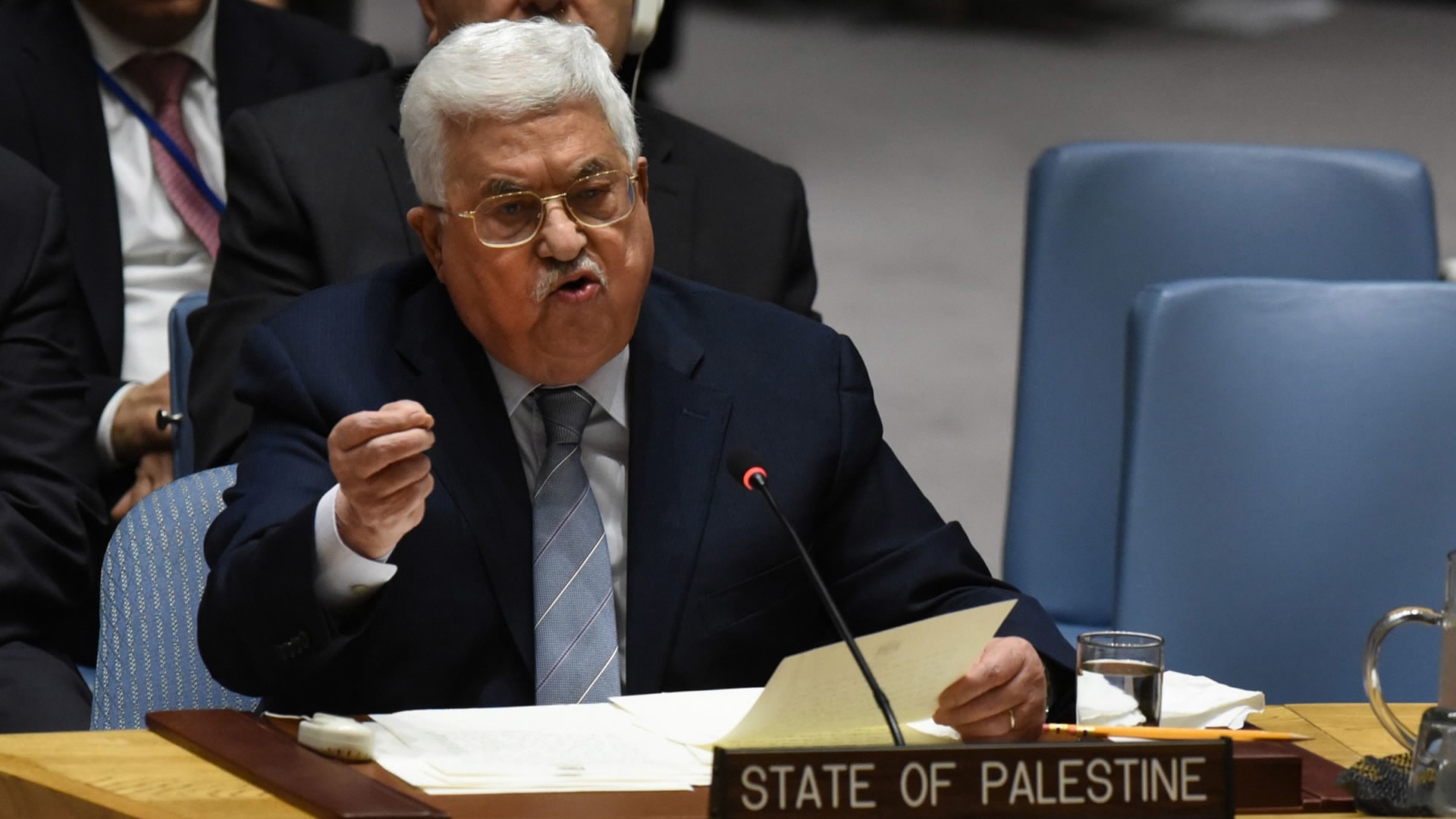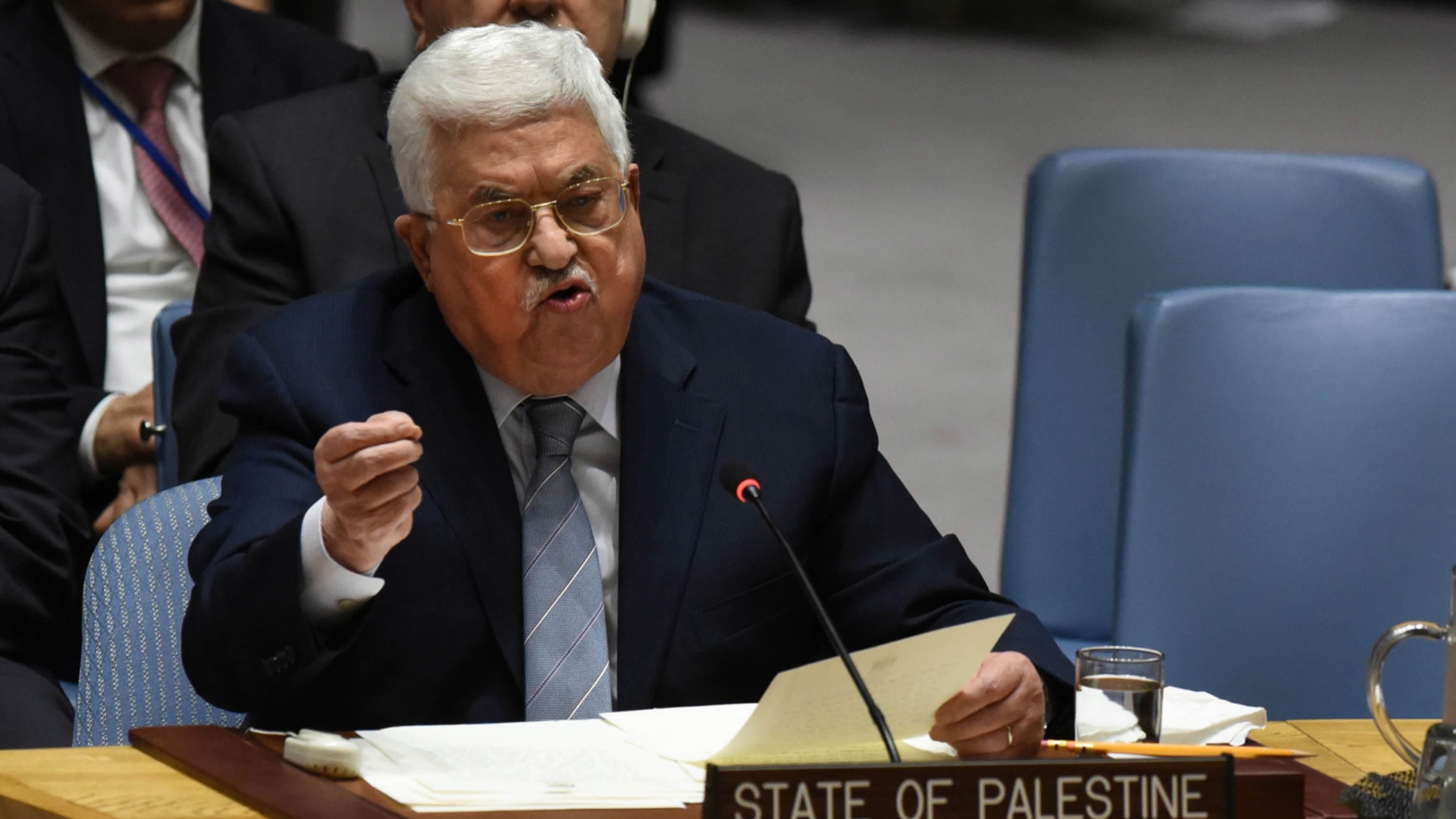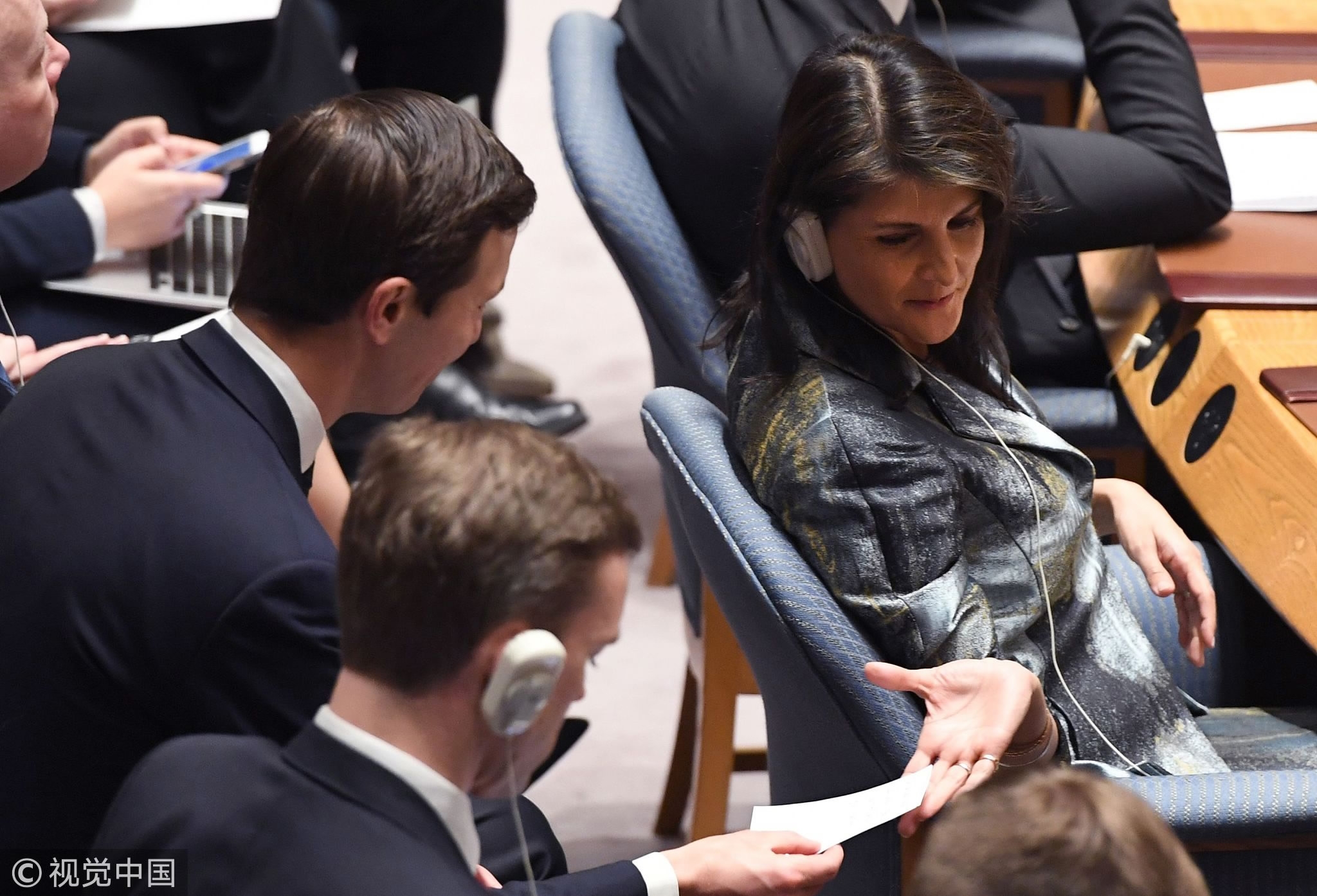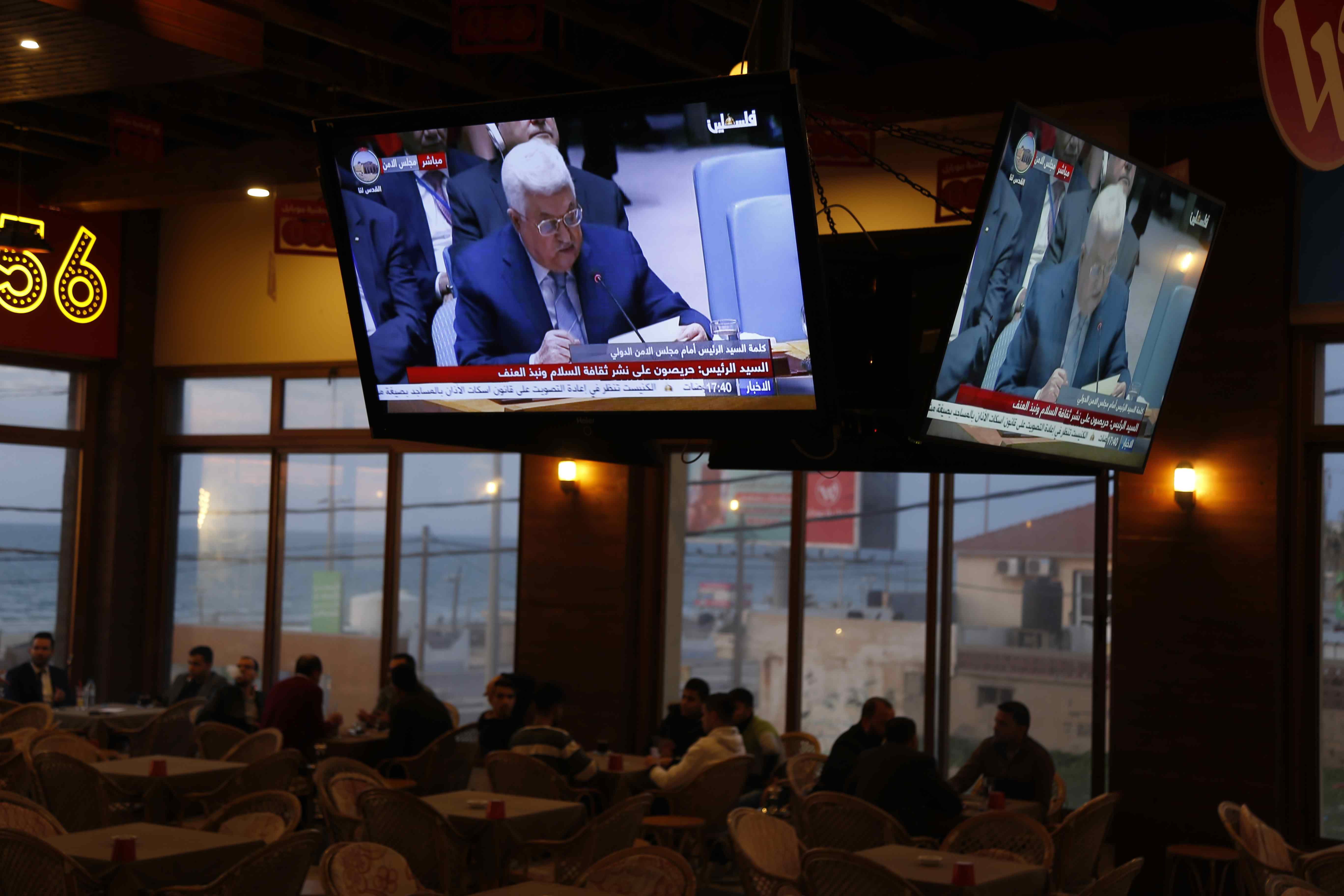
Politics
08:27, 21-Feb-2018
Abbas calls for international Mideast peace conference by mid-2018
By Khaled Alashqar

Palestinian President Mahmoud Abbas on Tuesday proposed a comprehensive peace vision for resolving the conflict with Israel in an address before the United Nations Security Council.
In the details of his speech, Abbas called to convene an international conference by mid-2018 with wide international participation, based on international law, the Arab peace initiative and the relevant UN resolutions, that would result in recognizing a Palestinian state within the 1967 borders.
“Recognizing a Palestinian state does not go against negotiations with Israel,” Abbas said. In the past two months, Abbas has asked several countries around the world to mediate and support such a multilateral process.

In his remarks on Abbas’s speech, Dr. Saeb Erekat, a member of the PLO’s Executive committee, confirmed that President Abbas has offered a historical opportunity for the international community to support the achievement of a just and lasting peace, and to put an end to 51 years of Israel’s occupation of Palestinian land.
Erekat stressed also that the international community should establish a concrete mechanism for the implementation of any future deal that would be reached with the Israelis, and set a clear time frame to end the Israeli occupation, and eventually declare a Palestinian state with East Jerusalem as its capital.

Nikki Haley, US ambassador to the United Nations, and Jared Kushner, Senior Adviser to President Trump, look at a note as Palestinian leader Mahmoud Abbas speaks at the United Nations Security Council, Feb. 20, 2018. /VCG Photo
Nikki Haley, US ambassador to the United Nations, and Jared Kushner, Senior Adviser to President Trump, look at a note as Palestinian leader Mahmoud Abbas speaks at the United Nations Security Council, Feb. 20, 2018. /VCG Photo
Angered by Washington’s move on Jerusalem, the Palestinian leader slammed the Trump administration’s decision to recognize Jerusalem as Israel's capital, describing it as “unlawful” and should be frozen immediately. He also demanded that Israel halt settlement construction on the West Bank, including Jerusalem, during any future negotiations, and any unilateral moves that would abort the final peace agreement with the Israelis.
Abbas concluded his speech by confirming that a referendum would be held to vote on the agreements to be reached with Israel, and hoped that the Security Council would respond positively to his vision of peace. Moreover, Abbas affirmed that he is ready to go above and beyond to protect the rights of his people.

/CGTN Photo
/CGTN Photo
Unexpectedly, a few Palestinians in the blockaded Gaza Strip followed Abbas’s Tuesday speech, because an overwhelming majority of residents in the Palestinian enclave are worried about the catastrophic economic and political situation there.
Adnan Abu Hasira, one of a few Gazans who watched the speech, told CGTN that President Abbas’s speech fell short of all expectations. “For example, I expected that President Abbas would announce dissolving the Palestinian Authority because of the US bias towards Israel, but that was not the case. [There was even] no dramatic change in his speech regarding the peace process and the relation with Israel," he added.

Mourners carry the body of Nimr al-Jamal, who was shot dead in September of last year by Israeli forces after carrying out an attack, during his funeral on Feb. 17, 2018, in the West Bank village of Beit Surik near Jerusalem. /VCG Photo
Mourners carry the body of Nimr al-Jamal, who was shot dead in September of last year by Israeli forces after carrying out an attack, during his funeral on Feb. 17, 2018, in the West Bank village of Beit Surik near Jerusalem. /VCG Photo
Dr. Samir Abu Mdalala, professor of political science at the Al-Azhar University in Gaza, said to CGTN that proposing a new peace plan for achieving peace with Israel under international auspices was an introduction by President Abbas to get rid of US dominance in leading the negotiations between the Palestinians and the Israelis. “Demanding to convene an international conference with wide international participation also reflected the President’s frustration with the US policy toward the Palestinians,” Abu Mdalala said.
Seemingly, now more than ever, the Palestinians are aware that the US administration has let them down, and has never been a neutral peace sponsor. Nonetheless, Trump’s decision on Jerusalem has started a new phase in the Palestinian–Israeli conflict. Furthermore, it forced the Palestinian Authority to seek help from the international community and the Security Council, in an attempt to gain the support of different countries in facing the arrogance of Israel and the United States.

SITEMAP
Copyright © 2018 CGTN. Beijing ICP prepared NO.16065310-3
Copyright © 2018 CGTN. Beijing ICP prepared NO.16065310-3